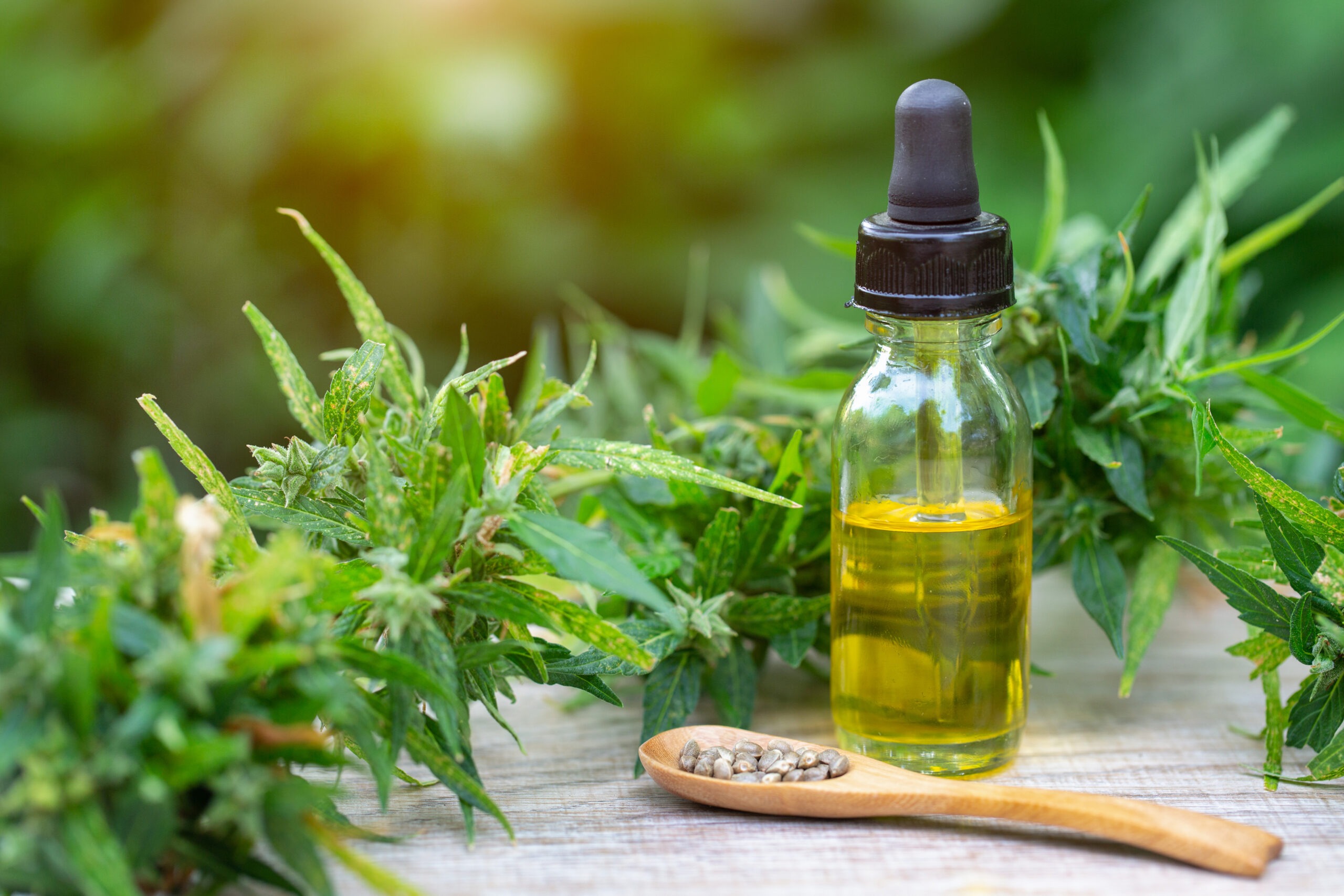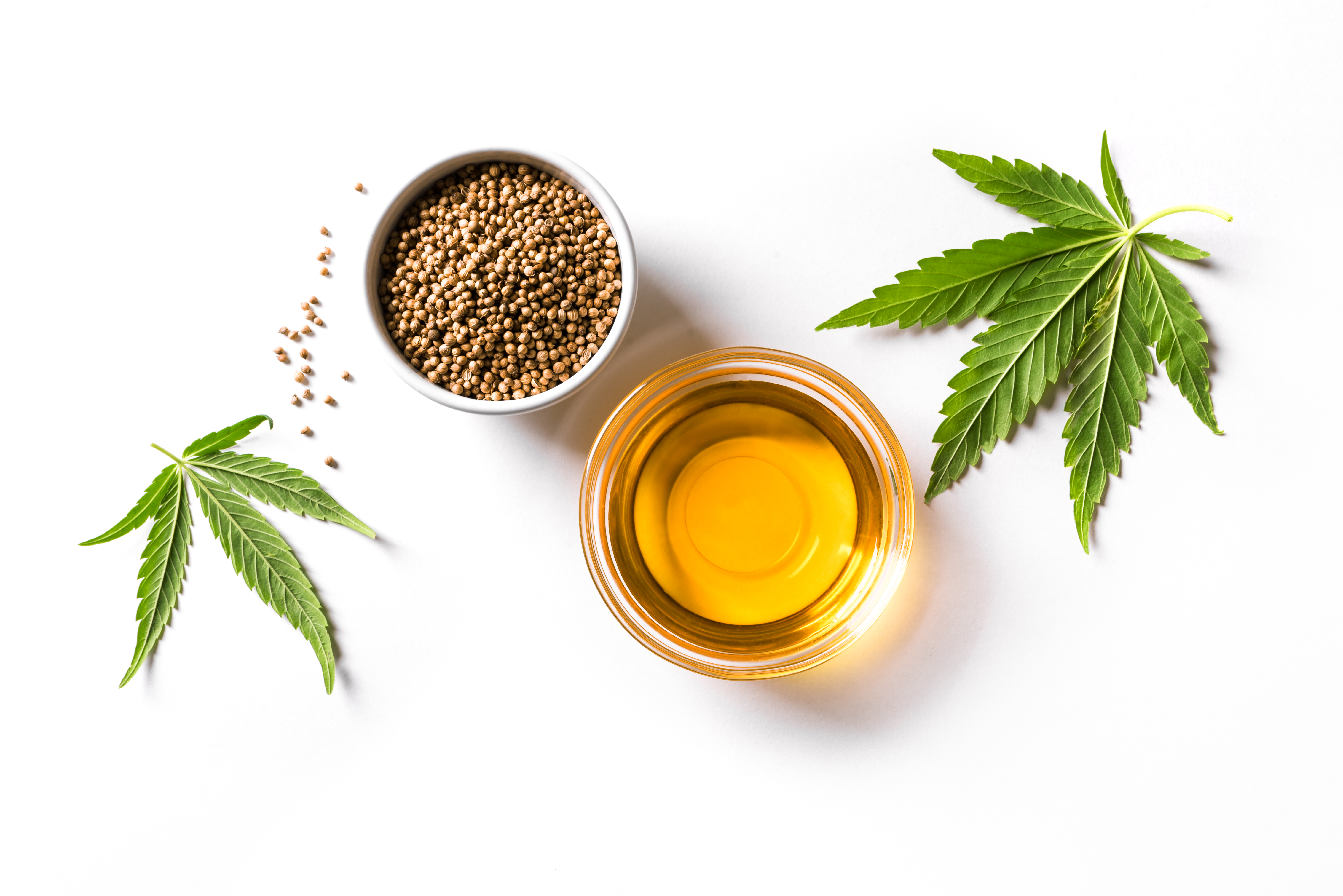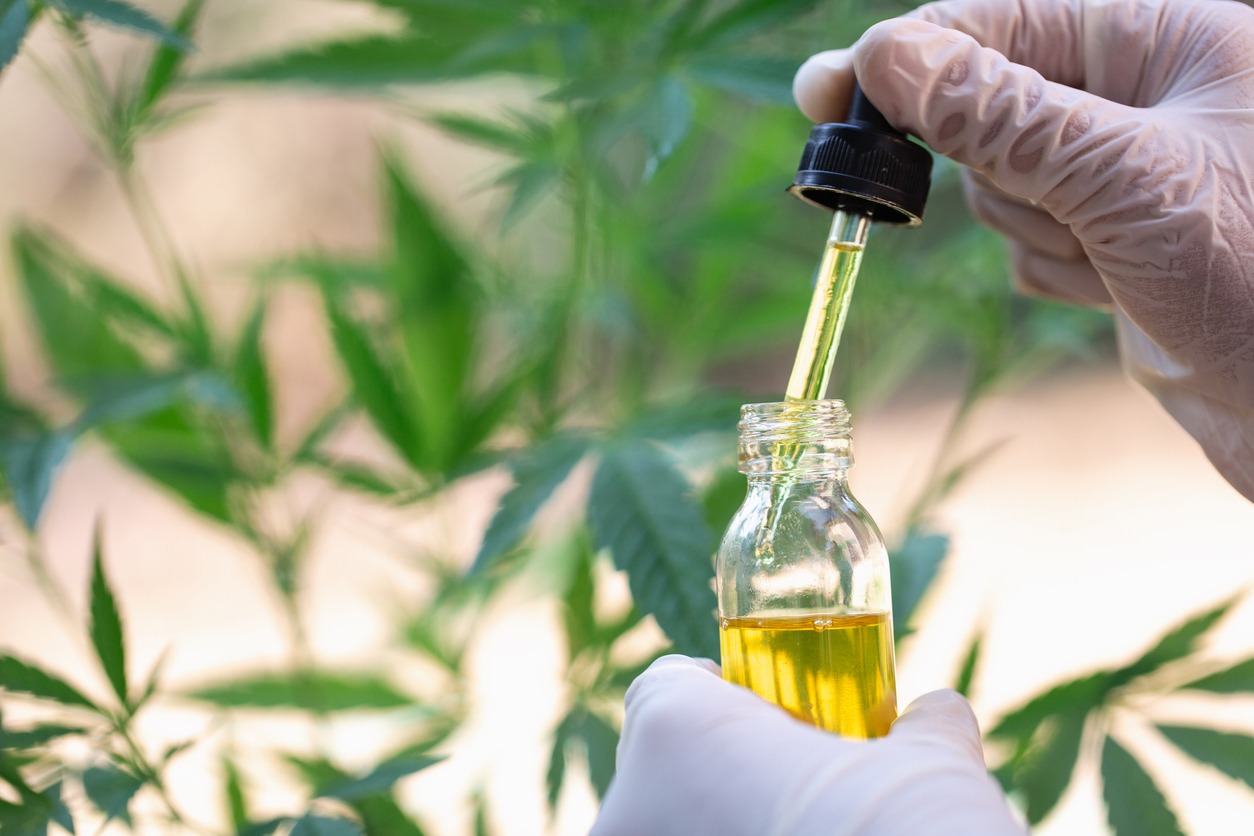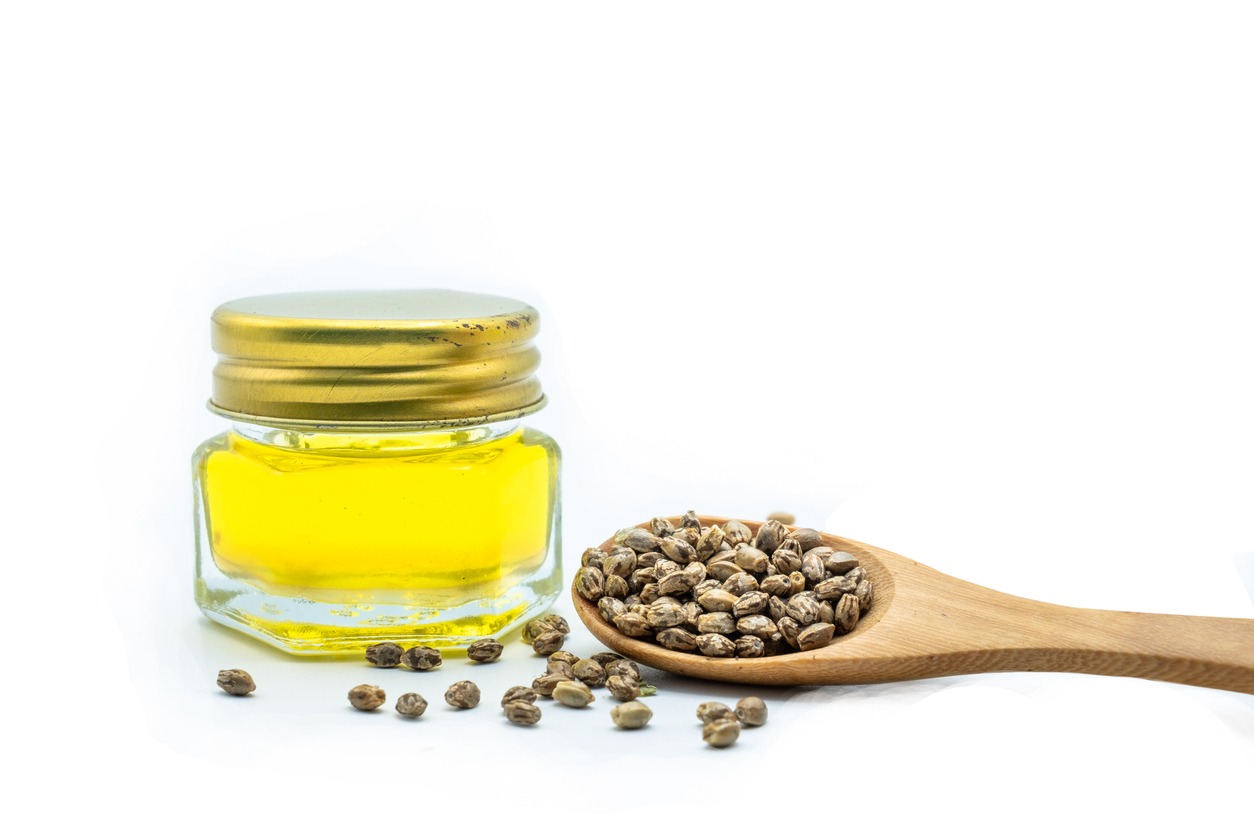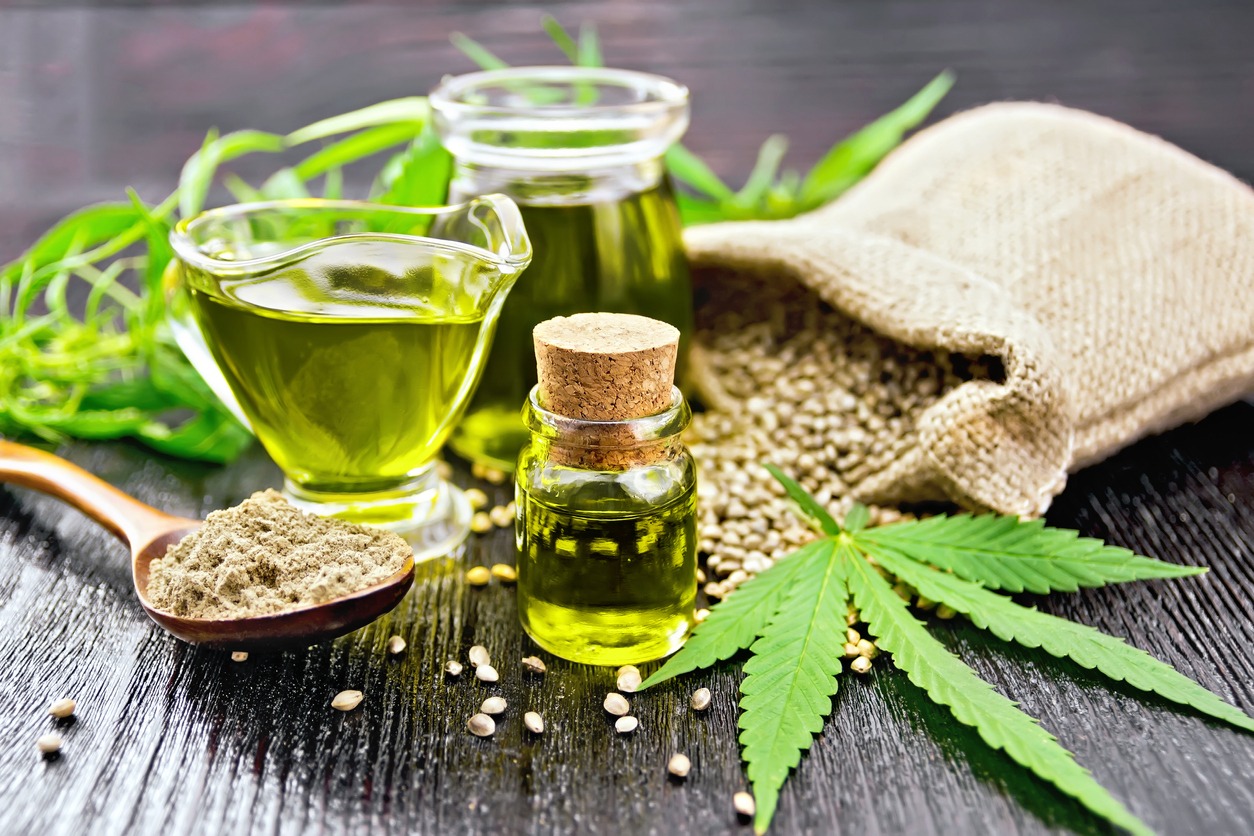Hemp oil is among the popular remedies today, particularly when it comes to skincare. The advocates of hemp oil claim anecdotal evidence for curative properties, from improving acne to treating cancer to slowing the progress of heart disease and Alzheimer’s. Some of these claims are not yet proven by clinical research. But based on some data, hemp oil may be able to help certain health issues, including skin conditions.[1]
You may have heard about hemp oil from other people or on the news, and it is commonly connected to marijuana or cannabis as it is of the same family. However, hemp oil is not weed, and it does not make people high. Over the years, this oil has grown in popularity due to research and alternative medicine. There are some doctors who have been recommending it for the relief of anxiety, inflammation, insomnia, and other health issues.
But what exactly is hemp oil? How do you think it is used, and what are the benefits and risks it is associated with? If you have the same questions in mind, you’re in the right place. In this post, we are giving you the ultimate guide to hemp oil.
What is Hemp Oil?
Hemp oil is also called hemp seed oil. It is made from hemp, which is a cannabis plant like the drug marijuana. However, hemp seed oil contains little to no tetrahydrocannabinol (THC), which is the chemical that gets people “high.” [2]
Hemp oil has large amounts of omega-3 and omega-6 fatty acids, which are unsaturated fats or good fats. It also has all nine essential amino acids, which are the materials that the body uses to make protein. Hemp seeds also contain minerals and nutrients, such as vitamin C, calcium, iron, gamma-linolenic acid, arginine, magnesium, and B vitamins.[2]
Difference Between Hemp Oil and CBD Oil
Both hemp oil and CBD oil come from legally cultivated hemp, which is low THC cannabis species. That is why it is quite challenging to understand their differences. Let us clarify their differences in this part.
CBD oil is extracted from the stalk, leaves, and flowers of the hemp plant. On the other hand, hemp oil is extracted only from hemp seeds. These seeds are naturally free from THC and CBD. This means that hemp seed oil does not contain any CBD at all.
However, there are a lot of sellers who intentionally omit the word seed and mention the term hemp oil, which may confuse a lot of consumers. Therefore, it is important to understand that, usually, hemp oil and hemp seed oil are the same things, and they are CBD-free products.
In contrast, if the oil is made using other parts of the hemp plant, such as leaves, flowers, or stalks, it will be rich in CBD and other cannabinoids, and it is thus called CBD oil. With this, consumers need to keep in mind that CBD oil contains CBD and may or may not contain other cannabinoids. But, as a rule, hemp oil does not contain any CBD until or unless the product explicitly mentions that it contains CBD.[3]
Is Hemp Oil Legal?
It is important to understand that hemp oil is a completely different product from CBD oil. It is great to visualize it as a healthy, vegan-friendly, edible oil. This means that it does not share many traits with CBD oil, except for the fact that both of them are extracted from the same plant but from very different parts.
Regulatory bodies classify CBD and related products as a novel food. In Europe, people began consuming it after May 15, 1997. But they have used hemp industrially for many years ago, and have also consumed hemp seed oil. This means that virgin hemp seed oil is not a new food product for them. In fact, it has been a part of the regular diet in some parts of the continent.[3]
In the United States, under the 2018 Farm Bill, hemp and hemp derivatives are permanently removed from the federal Controlled Substances Act. This means that they are no longer considered illegal by the Drug Enforcement Authority as long as the oil contains less than 0.3% THC. Also, based on the bill, hemp is not considered an agricultural commodity and is no longer mistaken for marijuana. Since hemp oil does not contain THC, it will not cause people to feel “high” or test positive on a drug test.
How is Hemp Oil Extracted from Hemp Seeds?
Extracting hemp oil from hemp seeds is quite as simple as extracting any other vegetable seed oil through the method of cold pressing. It is a process that applies massive pressure on the seeds to extract oil, and it is done at room temperature. Hemp cake is what is left of the seed after oil extraction, and it is commonly used to make supplements and animal feeds. It’s because it is rich in dietary fiber, protein, and other nutrients.[3]
The oil extraction process from hemp seeds is much simpler than CBD oil extraction from the leaves or stalks of the plant. It’s because once the seeds are dried, they mainly contain oil and have a very low moisture level. On the other hand, leaves and stalks have low oil content and high moisture. It also requires more specific techniques of extraction, such as hydrocarbon extraction or CO2 extraction and more.[3]
What are the Uses of Hemp Oil?
Sipping hemp seed oil from a teaspoon is the most effective method of consumption. Some believe that taking between 1 to 2 teaspoons of hemp seed oil every day has been shown to have wide-ranging health benefits.[4]
Aside from that, hemp oil can also be used topically to treat skin conditions or inflammation. It can be applied directly to the affected area. The oil can be used straight from the bottle, but there are also products that you can buy, such as moisturizers, balms, and even toothpaste, that contain hemp oil as their main ingredient.[4]
Hemp oil can also be added to various foods. It has an earthy and nutty flavor that can complement salads, dips, spreads, smoothies, baked goods, and more. However, try to avoid cooking hemp seed oil at high temperatures, as this can take out some of its health properties.[4]
Hemp Nutrition
A tablespoon of hemp oil has around 125 calories and 14 grams of fat. In addition to that, hemp seeds are also a rich source of other nutrients, such as:
Polyunsaturated Fats
These include omega-3 and omega-6 fatty acids, particularly alpha-linolenic and gamma-linolenic fatty acids, which can both fight inflammation. These can help prevent health conditions like heart disease, diabetes, arthritis, and cancer.[5]
Protein
Hemp seeds are also a complete protein as they contain all the essential amino acids that the body is unable to produce on its own.[5]
Minerals
Hemp seeds are also rich in minerals like potassium, calcium, magnesium, iron, phosphorus, and zinc. These play an important role in brain, muscle, and heart function.[5]
Vitamins
Hemp seeds contain vitamins A, C, E, and B, which are important for immunity and the prevention of diseases.[5]
Dietary Fiber
This is what keeps the digestive system working smoothly.[5]
The Health Benefits of Hemp Oil
Hemp seed oil is packed with fatty acids, vitamins, and minerals, which give it an incredible array of health benefits. In 2019, there has been a lot of preliminary research designed to determine the possible uses and benefits of CBD in humans. There are some conditions in which CBD has been tested in human clinical trials. Since hemp oil is a cutting-edge extract, more research is needed before drawing conclusions. But early research and user reports can help guide us in the potential uses of hemp oil in alleviating diseases and improving health.
As hemp oil is pressed from the seeds of the hemp plant, it’s considered a superfood when it comes to its nutritional benefits. The oil is loaded with ten essential amino acids, plus vitamin E, magnesium, calcium, phosphorus, potassium, iron, and zinc. Hemp extract oil is also rich in fatty acids crucial for the proper function of bodily systems, including the brain, heart, skin, eyes, and kidneys. Consuming too little of the essential fatty acids can lead to the drying of the skin and eyes, depression, heart disease, suppressed immune function, and cancer.
Below are some of the significant health benefits that you can get from hemp oil:
Hemp Oil Skin Benefits
Hemp seed oil is amazing when it comes to nourishing and regenerating the skin. As mentioned earlier, it contains high amounts of fatty acids, making it popular among people with skin conditions or those interested in containing breakouts and promoting overall skin health.
Based on research, hemp seed oil can strengthen the hair, nails, and skin, making them better resistant to infections. The skin benefits of hemp oil include helping to treat and manage conditions and irritations, including eczema, dermatitis, psoriasis, acne, and lichen planus.
Hemp seed oil is great to be mixed into everyday skin moisturizers. Skincare products that contain hemp oil are great for skin that is dry, tight, or even those already healthy. It also has anti-aging properties that help prevent signs of aging and reduce wrinkles and lines. The main reason hemp seed oil is good for the skin is due to its rich supply of omega-6 fatty acids, which encourages healthy skin growth and new cell generation.[4]
Hemp Oil Pain Relief and Inflammation Benefits
Hemp oil is also a popular anti-inflammatory. Aside from skincare, it is also commonly used to provide relief from inflammation and the pain that it can cause. This is due to its high amounts of gamma linoleic acid (GLA), which is an omega-6 fatty acid metabolite that contains anti-inflammatory properties.[4]
This means that taking hemp oil may help ease joint pain, organ or gland inflammation, headaches, and other pains related to inflammation. It can also be used along with or instead of other common over-the-counter pain medicines.[4]
Hemp Oil Heart Benefits
Hemp oil is rich in alpha-linolenic acid (ALA) and GLA, which have been shown to reduce the risk of cardiovascular disease. This is also commonly found in fish and flax seed oil supplements. Hemp oil benefits cardiovascular healthy by reducing high blood pressure, cholesterol levels, and atherosclerosis.[4]
Hemp Oil Brain Benefits
The high amounts of fatty acids in hemp seed oil also have a lot of benefits for brain function. They allow the brain to perform as it should. Aside from that, hemp oil also has compounds like polyphenols, which have been found to play a role in protecting the brain. The anti-inflammatory properties of the oil also benefit brain function.[4]
Hemp oil can also relieve stress and anxiety. Even if you aren’t struggling with anxiety disorder, you may experience elevated stress and pressure at one point in your life. Targeting stress is critical for reducing your chances of insomnia, heart disease, and other conditions. Small-scale human studies found hemp oil to confer benefits to those who experience stress and anxiety.
Potential Risks of Hemp Oil
Generally, hemp oil is safe to ingest or use topically. However, there are a few things that you need to consider before you start to take or use hemp oil. Below are the potential risks of hemp oil:
Skin Irritation
There are some who may experience skin irritation when using topical oils like hemp seed oil, which can possibly be due to an allergy. Therefore, before using any hemp oil products, it is better to use a small amount to see how your skin reacts to it and observe any changes.[2]
Digestive Issues
It is also possible that ingesting hemp oil can cause an upset stomach or diarrhea. When you are first introducing hemp oil into your diet, it is important to start small first and observe how the oil will impact you. Reactions may differ from one person to another.[2]
Conclusion
Hemp oil contains a lot of nutrients, such as healthy omega-3 and omega-6 fatty acids and vitamin E, which may help keep your brain, skin, and heart healthy. However, keep in mind that more human trials are needed to determine how effective hemp oil really is for everyone. Even though hemp oil is very popular and research has indicated some health benefits, it is still important to check with your doctor first before using hemp oil topically or ingesting it as a supplement. We hope this post helped you learn more about hemp oil.
References
[1] Frothingham, S. (2019, May 8). Hemp oil benefits: For inflammation, skin, PMS, and Menopause. Healthline. Retrieved January 10, 2023, from https://www.healthline.com/health/hemp-oil-benefits
[2] Mikstas, C. (Ed.). (2022, November 23). Is hemp oil good for you? pros and cons, nutrition information, and more. WebMD. Retrieved January 10, 2023, from https://www.webmd.com/diet/hemp-oil-good-for-you
[3] Bhinder, P. P. S. (2023, January 5). Hemp oil: A comprehensive guide. Essentia Pura. Retrieved January 10, 2023, from https://essentiapura.com/the-complete-guide-to-hemp-oil/
[4] The Brothers Green, E. (2022, June 28). What is hemp seed oil? The Brothers Green. Retrieved January 10, 2023, from https://thebrothersgreen.co/blogs/learn-more/what-is-hemp-seed-oil
[5] Gupta, S., & Ivanov, Z. (2022, May 26). Hemp oil is packed with healthy fatty acids – here’s why that’s great news for your skin and heart. Insider. Retrieved January 10, 2023, from https://www.insider.com/guides/health/hemp-oil

